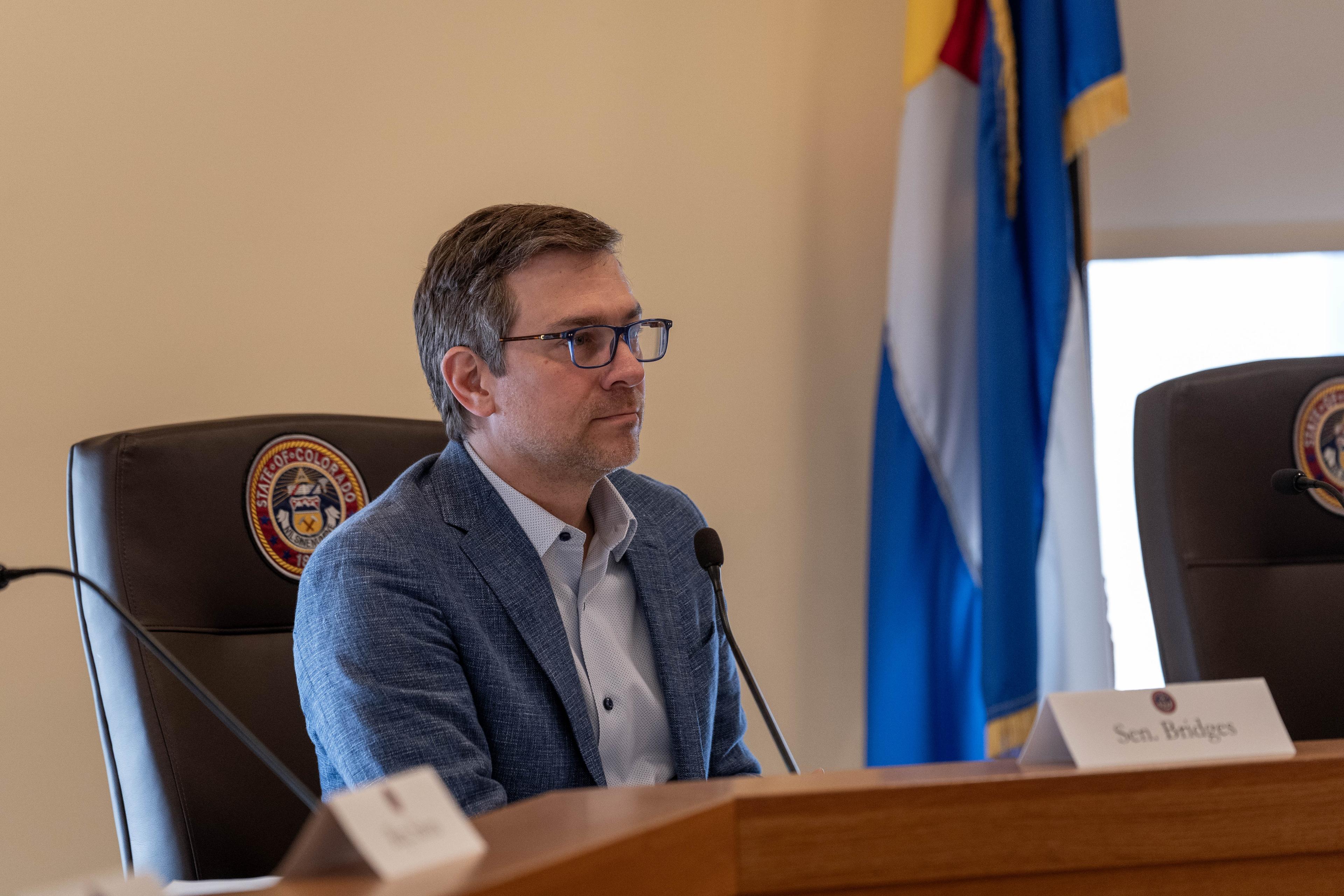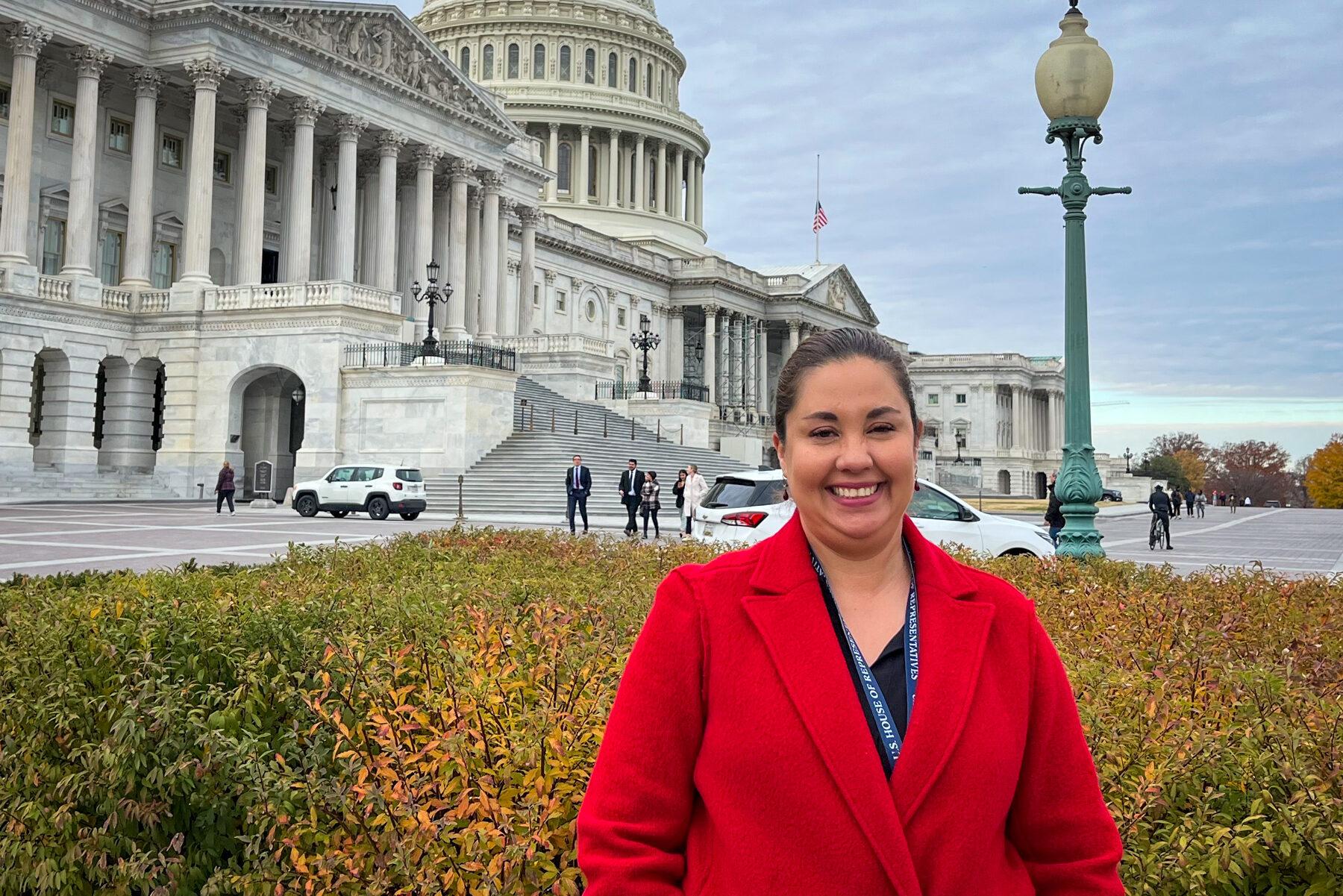
Leroy Gardenhire, decked out in his green prison uniform, is in his own world. A virtual world. But he’s not wearing VR goggles to pass the time. He’s doing laundry in a laundromat while some other inmates watch him while seated nearby at the Fremont Correctional Facility, a level 3 prison in Cañon City.
Gardenhire is among a group of inmates who have lived behind bars since they were children--never thinking that one day they’d be let out. They’ve never used a debit card or a cell phone. Many haven’t ever done their own laundry or driven a car.
But that’s about to change, in a way way, for Gardenshire and some others. Dozens of Coloradans sentenced to either life without parole or very long sentences as juveniles now have a chance at release. And they’re getting help preparing to live on the outside, including using virtual reality to help them learn skills they haven’t seen or used since before they were convicted. They also have to learn how to cope with the way society has now labeled them.
“We need to learn how to respond when someone says, ‘You’re a murderer,” said Eric Davis. Davis is 49 and he’s been serving a 40 year to life sentence since he was 17. He has a chance to petition for re-sentencing in 2021.
In 2012, the U.S. Supreme Court ruled that a life without parole sentence for juveniles was cruel and unusual punishment. In 2016, the Colorado legislature passed a law saying that juveniles with very long sentences had the chance for a re-sentencing. For that to happen they had to have completed 20-25 years of their sentence and successfully completed a 3-year reentry program. This reentry program is now a mandate in Colorado, and facilities are just starting to build curriculum. VR is a part of that.
The Fremont facility is one of the first correctional institutions in the country to experiment with virtual reality. Nine male inmates at Fremont Correctional Facility are enrolled in this reentry program. All nine were convicted when they were juveniles of violent crimes, including second-degree and felony murder. Some were as young as 15 but were tried as adults, and many have been living in adult correctional facilities since their conviction.
All inmates released from prison go through an adjustment period. This particular group of inmates in Fremont have a unique hurdle for reentry because they entered so young, and many are now in their late 30s or 40s. Most of them have been in a correctional institution far longer than they’ve been outside of one. Some inmates in the reentry program said they’d never been to a restaurant. Many said they’ve never driven a car.
Melissa Smith, who oversees the program for the Colorado Department of Corrections, said they found virtual reality as an option when they were doing research on implementing the mandate. She said Pennsylvania was also experimenting with virtual reality, but not necessarily in the same way for the same population.
There is a small group of juvenile offenders who are tried as adults and sentenced to such severe sentences. This unique experience has bonded these inmates more than others. “We know what the kids are going through who are coming in after us, and we can tell them what to expect,” said Nathan Lucero.
Others are more changed by the experience. “If I get out and this program is still going, I’m coming back in,” said Eric Davis, about how he would help future inmates. Davis is 49 and he’s been serving a 40 year to life sentence since he was 17. He has a chance to petition for re-sentencing in 2021.
Gardenhire is the only of the nine inmates in the reentry program who is officially set to be released. His life without parole conviction was changed to 40 years. He could be out in a few years. He said he’s nervous about pretty much every aspect of reentry. But what he’s looking forward to, he said, is eating delicious food, especially some Italian.







